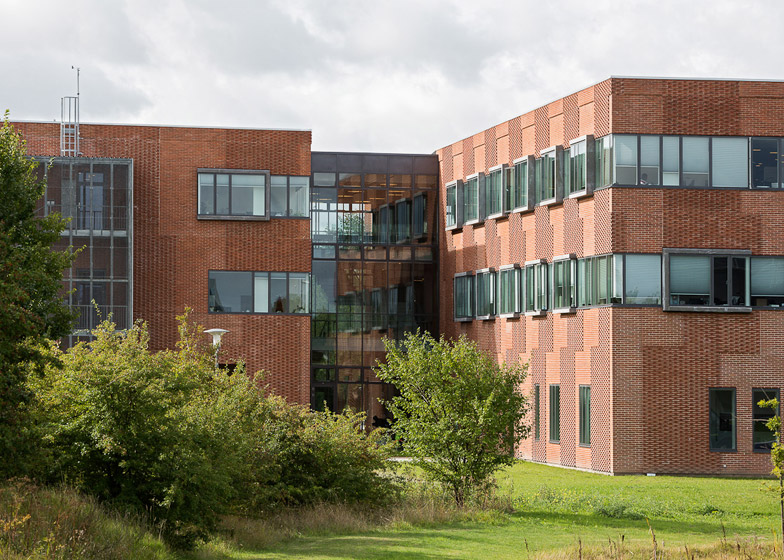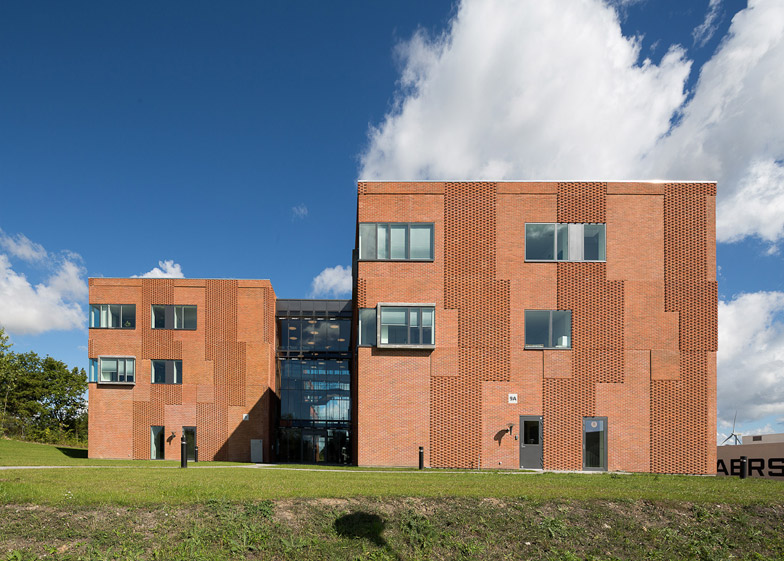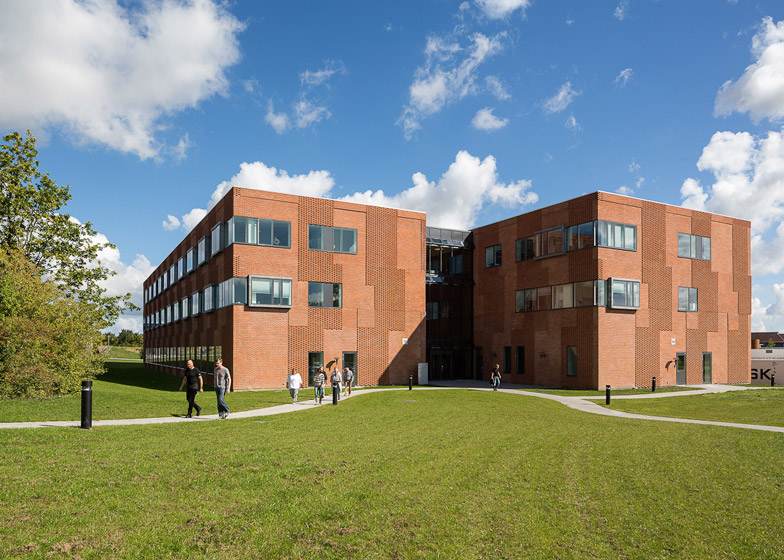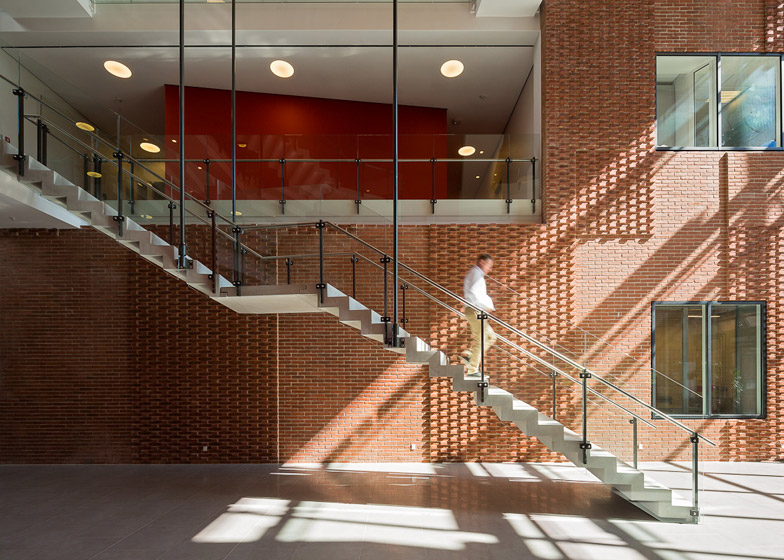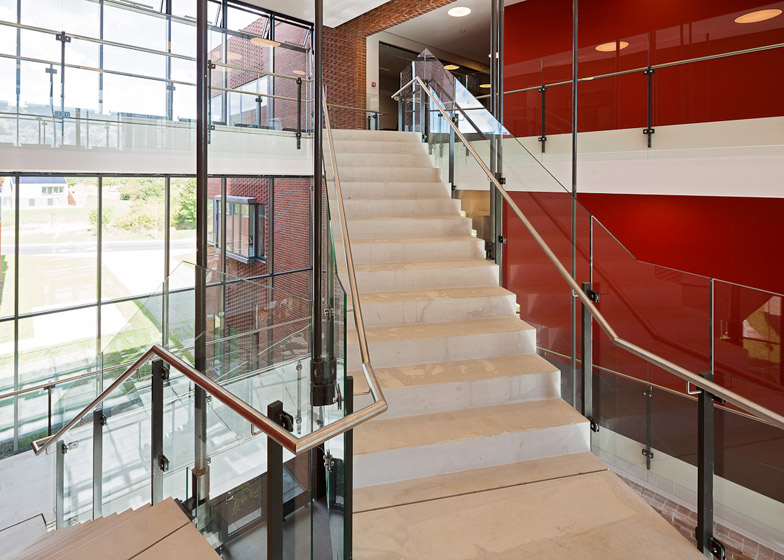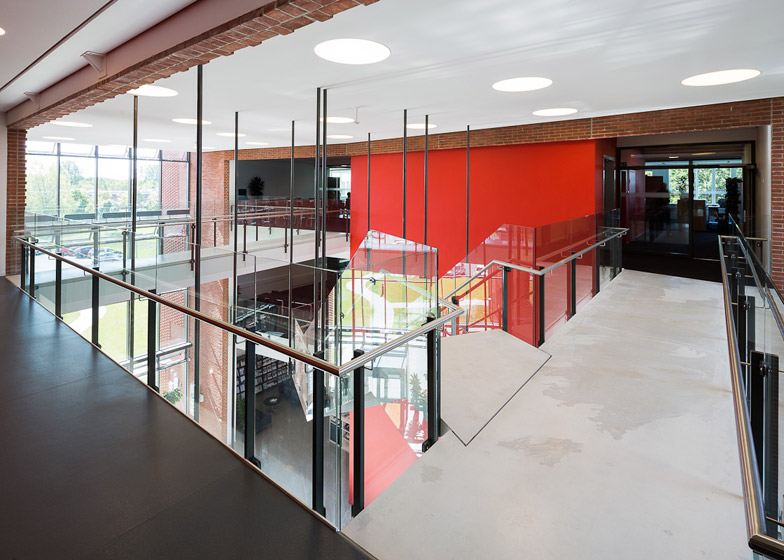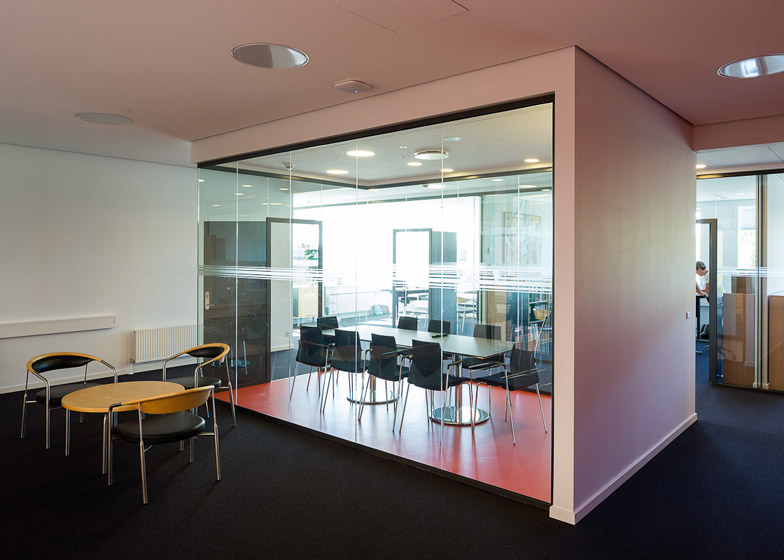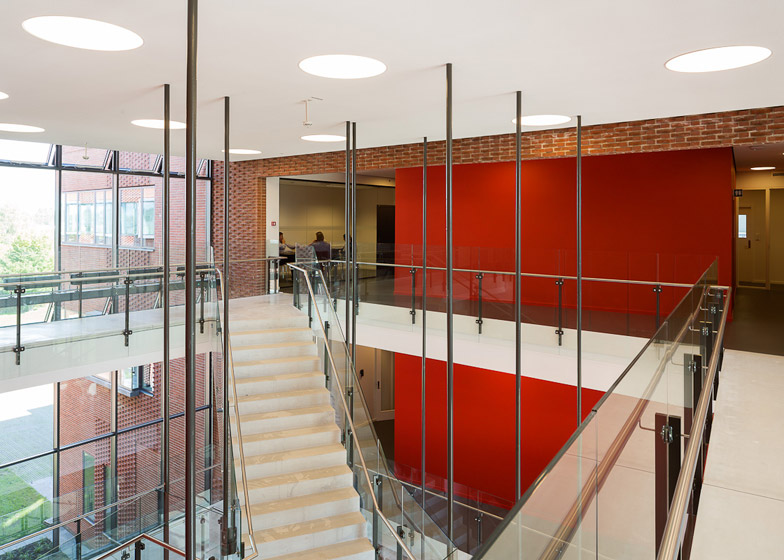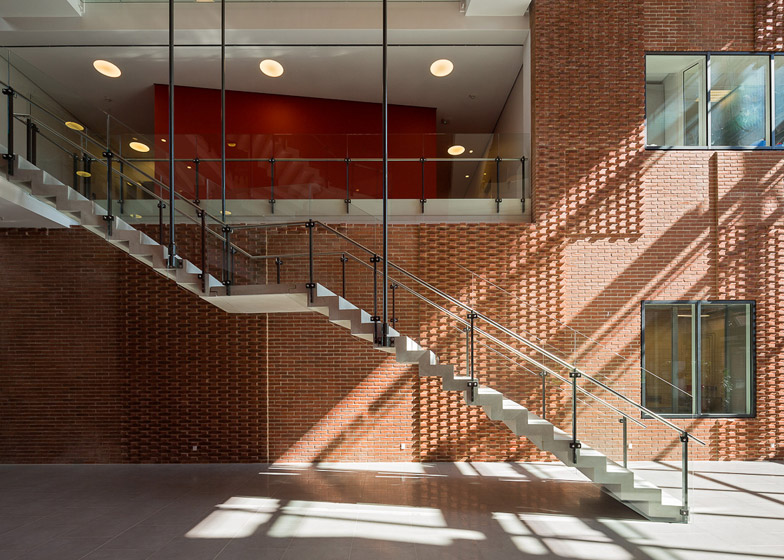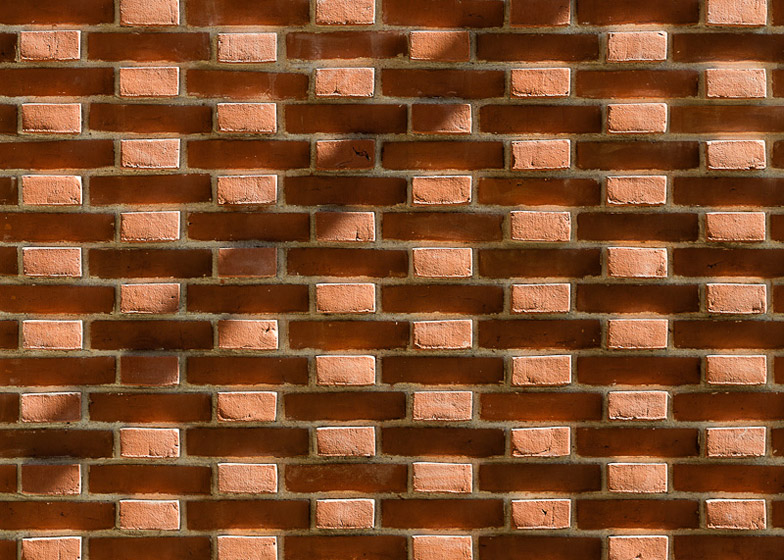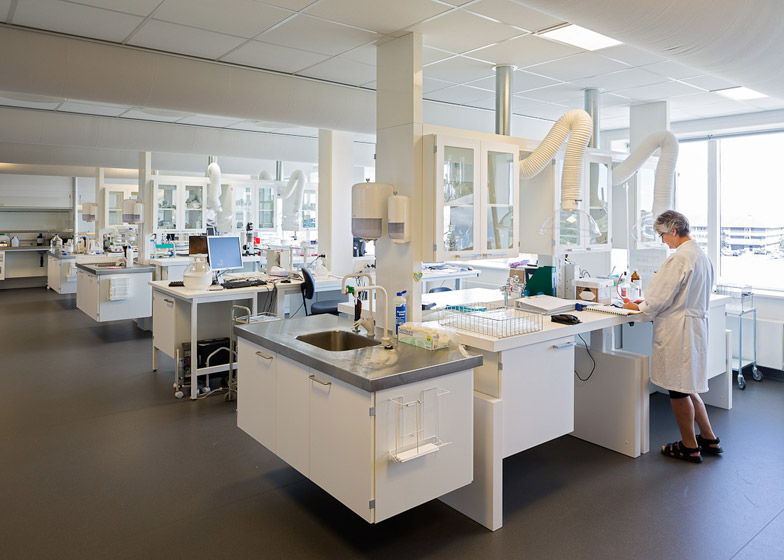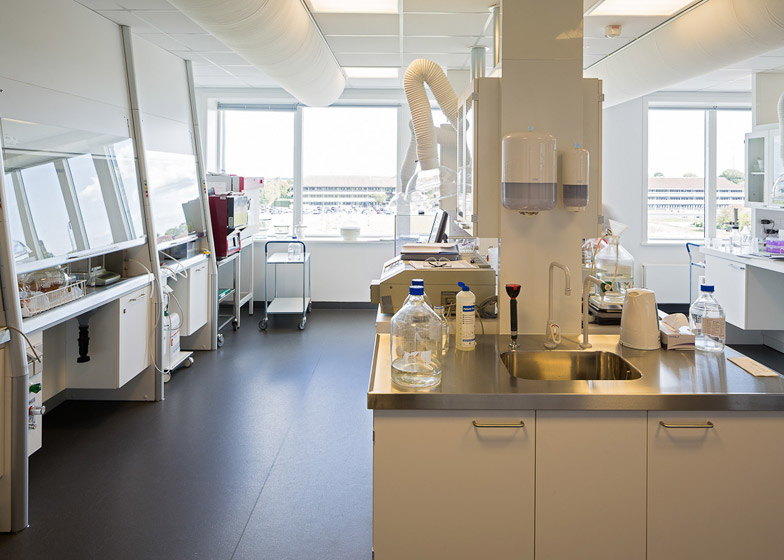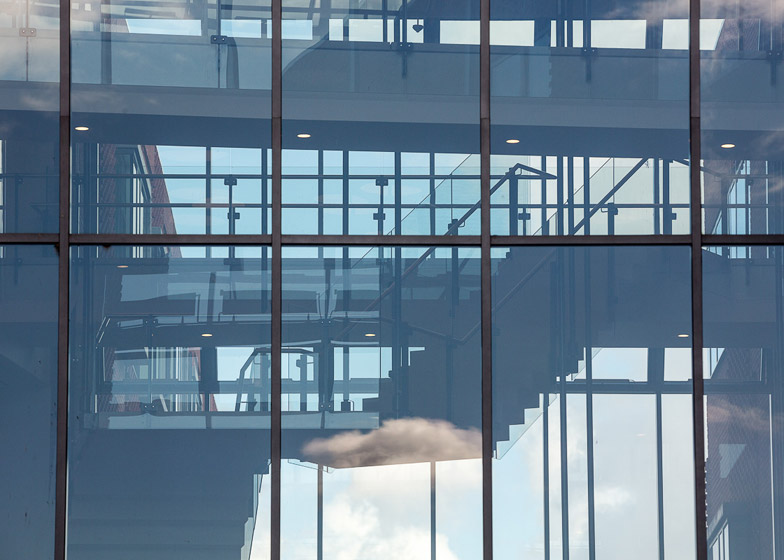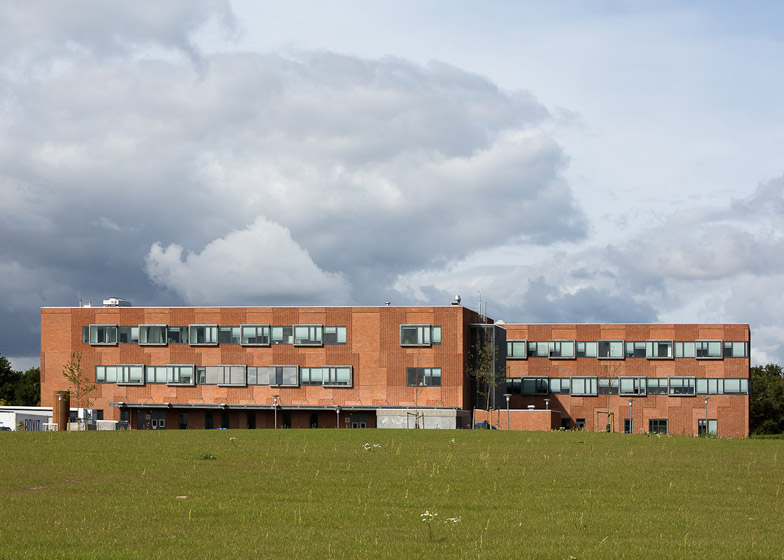Prefabricated brick panels create decorative cladding that complements the existing 1970s buildings surrounding this new facility for the Danish Meat Research Institute designed by CF Møller for a campus near Copenhagen (+ slideshow).
Scandinavian firm CF Møller was asked to develop the research centre at the Danish Technological Institute in the town of Taastrup to accommodate new facilities for the Danish Meat Research Institute, including an abattoir, microbiological and chemical laboratories, robotic workshops, meeting rooms and offices for the centre's 120 staff.
The institute's campus comprises red brick buildings with concrete lintels designed by Vilhelm Wohlert – the Danish architect of Copenhagen's Louisiana Museum – so the project team chose to reference the original buildings in the choice of material but utilise a contemporary construction method.
"The campus is very characteristic with the red brick buildings sitting in a beautiful landscape so our task was to do something innovative and modern but still related to the context," project architect Anna Maria Indrio told Dezeen.
The external facades of the new facility are entirely clad in prefabricated brick panels that are produced with insulation already integrated and simply mounted onto the structural framework.
Projecting headers create a decorative relief pattern that repeats across the facades according to the arrangement of the panels.
"By creating this decorative facade we avoid the kind of dull prefabricated buildings that have clearly visible junctions between the panels," said Indrio. "We found an innovative way of presenting the familiar red brick building that reflects the innovation taking place inside."
The brickwork continues inside the building's atrium, which bridges a gap between two separate wings housing the laboratories on one side and the offices on the other.
The atrium contains the entrance and main staircase and can also be used to host exhibitions and events.
Windows on either side enable visitors to observe the staff at work as soon as they enter the building and create a visual link between those working in the laboratories and the offices.
Concrete window surrounds, which echo the exposed lintels on the original buildings, wrap along three edges of the glazing that protrudes outwards from the facades to create bay windows.
These openings offer wider views of the surrounding landscape than a standard window, which Indrio explained is "important for the relationship between the inside and outside and gives a pleasant environment when you sit inside."
Photographs by Torben Eskerod.

